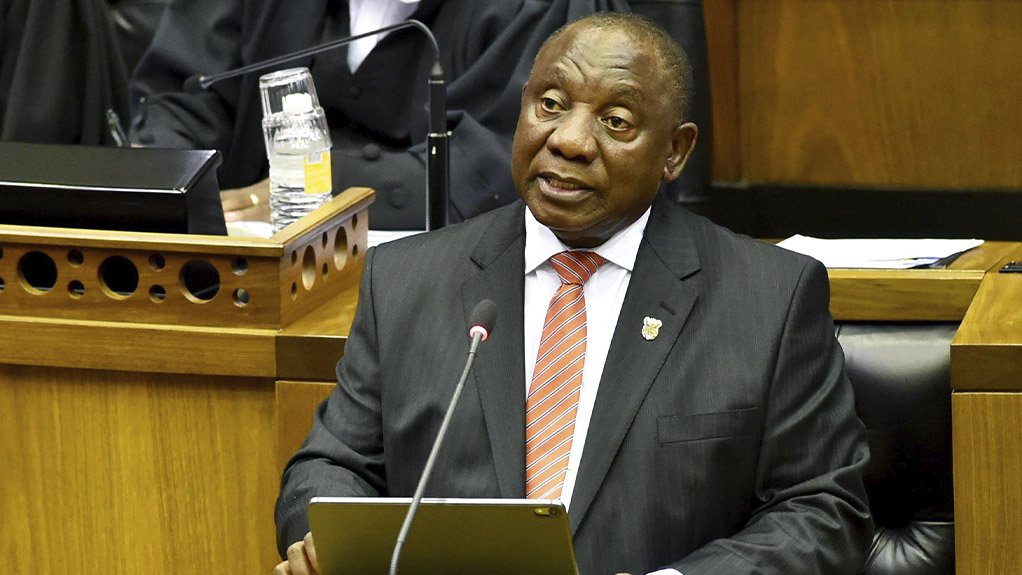President Cyril Ramaphosa outlined six steps for addressing the country’s electricity shortfall in a Budget Vote speech that was delayed and disrupted by opposition Members of Parliament who objected to the address from proceeding in light of a criminal complaint having been lodged against Ramaphosa in relation to the alleged theft of foreign currency from his Limpopo farm in 2020.
Speaking against the backdrop of an intensification of load-shedding, Ramaphosa said government was “seized with the need to get as much new generation capacity on to the grid as possible, as quickly as possible”, confirming Eskom’s estimate that the shortfall could be as large as 6 000 MW.
He went on to list six initiatives to close the electricity gap, including:
- improving the performance of existing power stations and ensuring that additional units at Medupi and Kusile came online according to schedule;
- ensuring that projects from existing procurement programmes, including bid window five of the renewables programme, reached financial close and connected to the grid as quickly as possible;
- accelerating private sector investment in generation capacity under 100 MW;
- enabling Eskom to purchase surplus power from existing power producers;
- supporting municipalities to procure power independently; and
- encouraging households and businesses to invest in small-scale solar power installations and feed energy to the grid.
“Work is already under way in each of these areas,” the President said.
He highlighted in particular recent efforts under Operation Vulindlela to improve coordination between government departments, Eskom and the private sector to accelerate embedded generation projects.
“We have already simplified the registration process by removing the requirement of a power purchase agreement for registration, shortened the timeframes for environmental authorisation, and increased Eskom’s capacity to process grid connection applications.
“The first two embedded generation projects under 100 MW were successfully registered two weeks ago, and a further 16 projects were registered by the regulator this week.
“A total of 68 projects are now in development, with a combined capacity of over 5 000 MW that will begin to connect to the grid over the next few months.”
Ramaphosa also confirmed that the Department of Mineral Resources and Energy (DMRE) would review and update the Integrated Resource Plan (IRP) of 2019 “to ensure that it remains relevant in light of the electricity shortfall and our climate change commitments”.
The decision to review the IRP, which is largely considered to be outdated, was announced by Mineral and Energy Resources Minister Gwede Mantashe a few days earlier and following a recent Cabinet retreat.
Cabinet subsequently approved the appointment of Jacob Mbele, who has for years been intimately involved with both the IRP and the procurement of electricity from independent power producers, as the new director-general of the DMRE.
Ramaphosa also told lawmakers that South Africa was on the cusp of a fundamental transformation in the electricity sector, which was “undergoing the most significant reform process in our country’s history”.
“Once these changes are implemented, we will have multiple generators competing to supply electricity at the lowest cost and selling power directly to customers.
“We will unleash new public and private sector investment in generation capacity at a massive scale,” he said.
EMAIL THIS ARTICLE SAVE THIS ARTICLE ARTICLE ENQUIRY
To subscribe email subscriptions@creamermedia.co.za or click here
To advertise email advertising@creamermedia.co.za or click here











